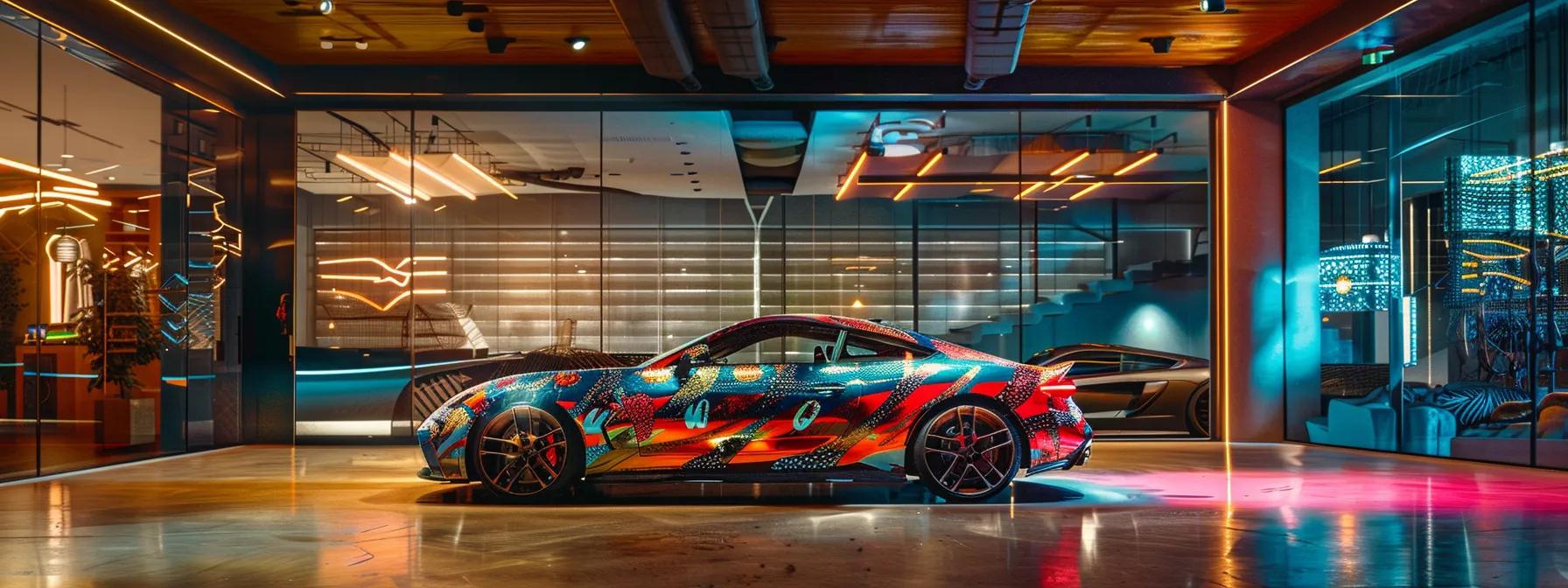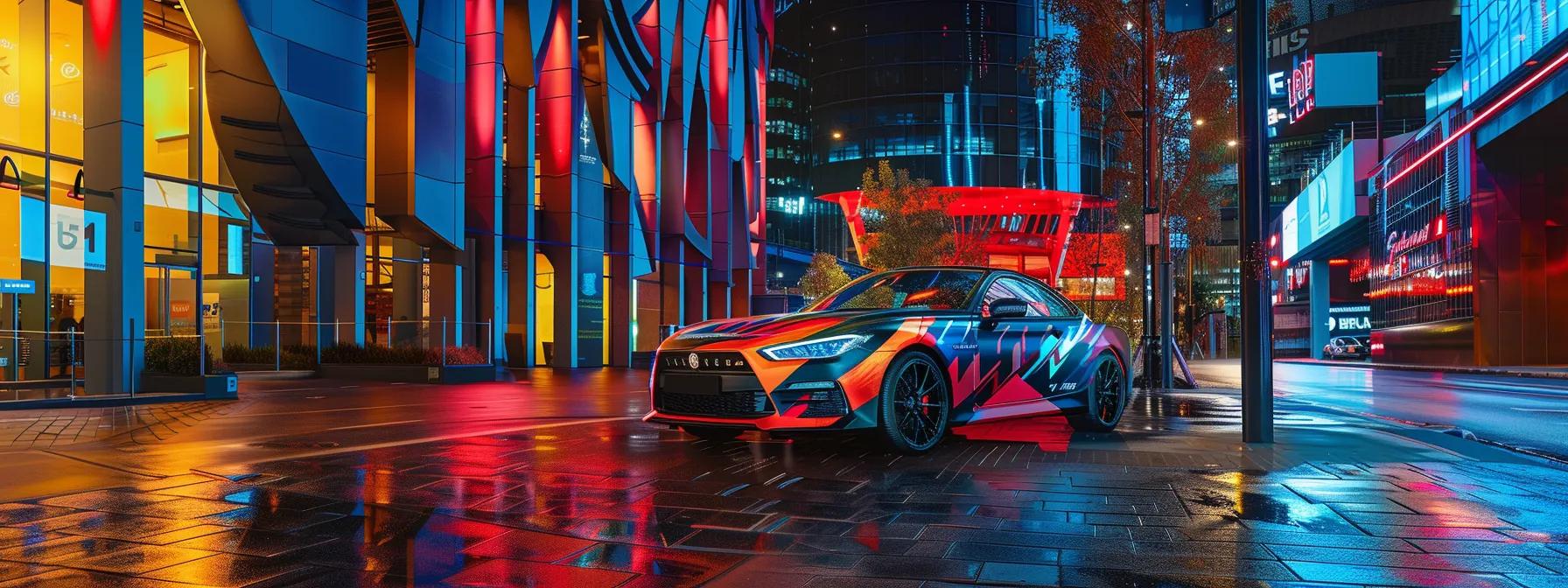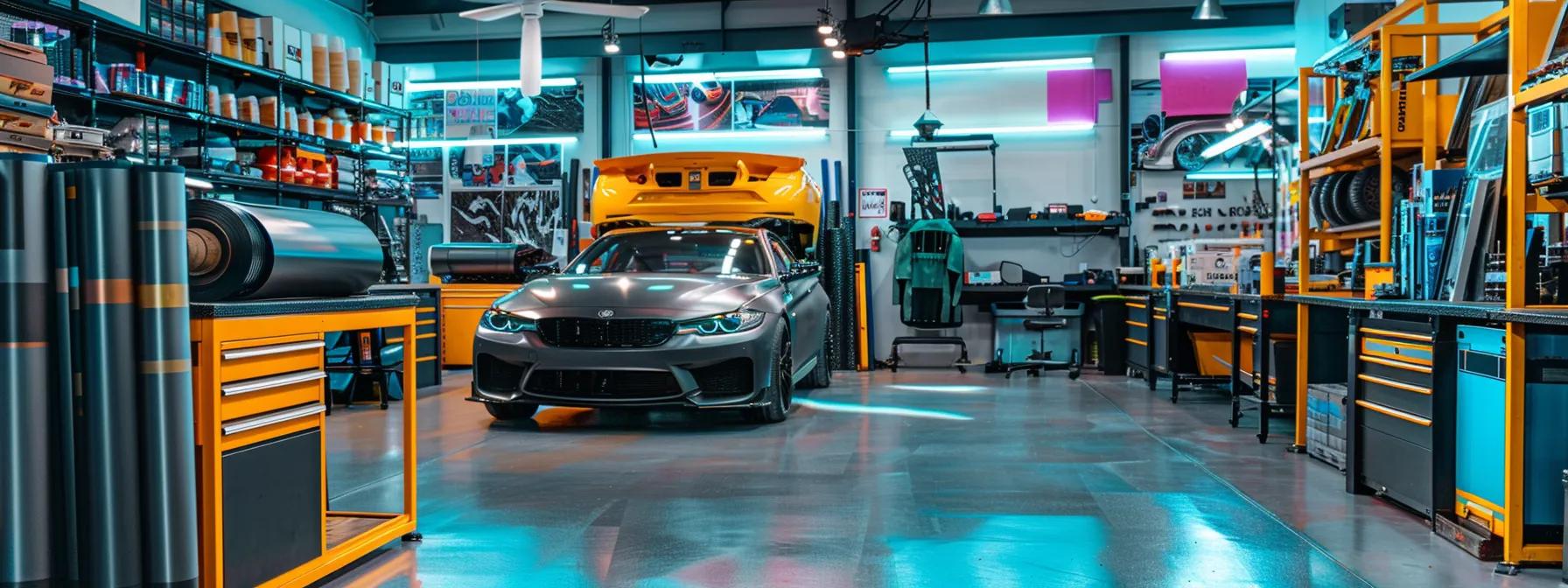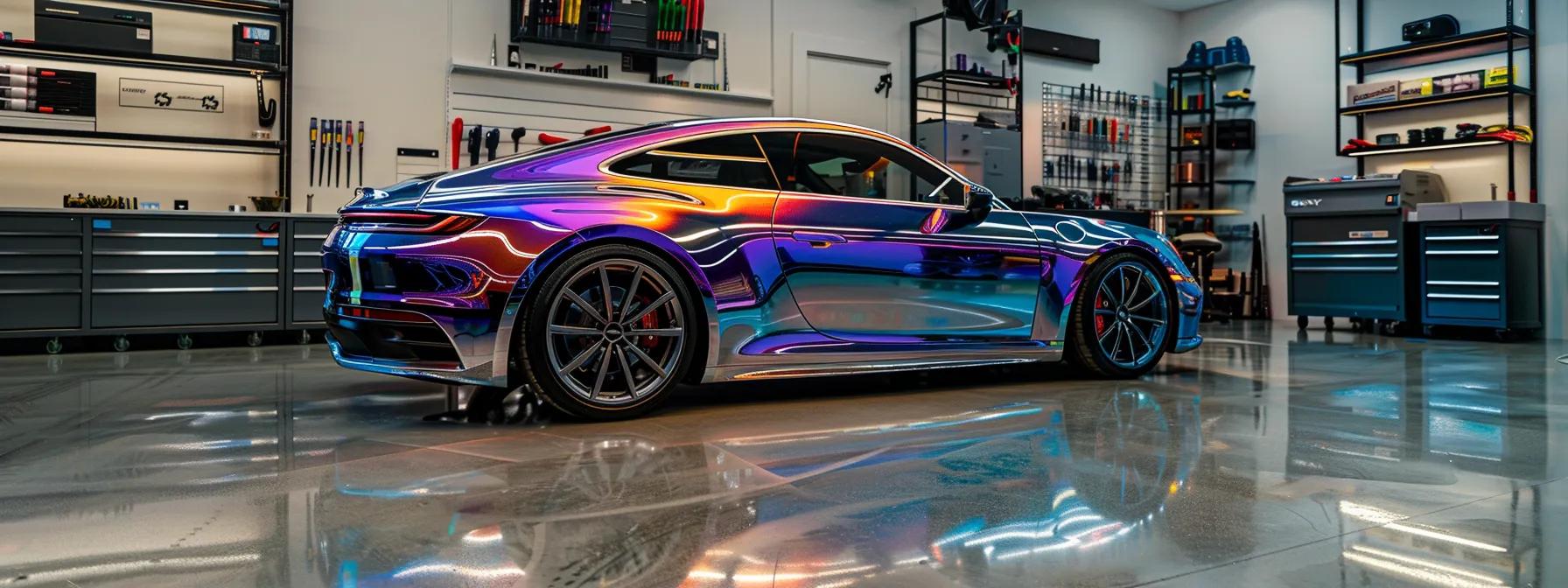
Custom Car Wraps by Perfect Impressions: Design, Installation & Cost
Custom car wraps have revolutionized the way businesses and individuals showcase their brand and personality on the move. As companies strive to make an impact in retail environments, at trade-show-displays, and as part of uniforms-screen-printing initiatives, vehicle graphics have become an essential marketing tool. With Perfect Impressions offering comprehensive graphic design and full-service production, this guide explains how custom car wraps transform vehicles by combining innovative design with high-quality materials and expert installation.
This article covers what a vehicle wrap is, its benefits, target audiences, and how professional design enhances a vehicle’s look. It also compares vinyl materials, installation methods, cost factors, and DIY versus professional services, while outlining best practices for maintaining a custom car wrap to ensure lasting visual appeal and durability.
As businesses and brand managers seek lasting impressions, leveraging custom car wraps is a key component of effective, eye-catching advertising. The guide offers actionable advice and industry-tested techniques to help you make the most of the custom car wrap process and achieve perfect impressions every time. Transitioning now to the specifics, let us explore exactly what custom car wraps are and how they can transform your vehicle.
Table Of Contents:
- Custom Car Wrap Services: Complete Guide to Design, Materials, Installation, and Cost
- Introduction
- What Are Custom Car Wraps and How Do They Transform Your Vehicle?
- How Do Professional Car Wrap Design Services Enhance Your Vehicle’s Look?
- Which Vinyl Materials Are Best for Custom Car Wraps?
- How Is a Custom Car Wrap Installed and What Should You Expect?
- What Factors Influence the Cost of Custom Car Wraps?
- Can You Wrap Your Car Yourself? A DIY Car Wrapping Guide
- How Do You Care for and Maintain Your Custom Car Wrap?
- Tables and Lists
- Frequently Asked Questions
- Final Thoughts
What Are Custom Car Wraps and How Do They Transform Your Vehicle?

Custom car wraps consist of high-quality vinyl graphics applied over a vehicle’s original paint job to completely transform its exterior. Using advanced printing technologies and durable materials, these wraps allow businesses and individuals to update their vehicle’s look quickly and cost-effectively.
What Is a Vehicle Wrap and How Does It Work?
A vehicle wrap is an adhesive vinyl layer printed with a custom design and applied over the vehicle. The wrap conforms to curves and contours, creating an eye-catching façade that communicates your brand identity. It also protects the vehicle against minor abrasions and UV damage, and can be removed without harming the original finish—making it ideal for temporary promotions and brand updates.
What Are the Benefits of Custom Car Wraps?
Custom car wraps enhance visual appeal, increase brand visibility, and protect the vehicle’s paint. By turning a vehicle into a mobile advertisement, they reach a wide audience wherever the vehicle travels. They also offer cost efficiency compared to a full paint job, while being fully reversible. Customizable designs allow businesses to tailor messages for retail environments, trade-show-displays, and uniform branding needs, adapting easily to evolving marketing strategies.
Who Can Benefit From Custom Car Wrap Services?
Customers ranging from small business owners to brand managers and fleet operators can benefit from custom car wraps. They are ideal for marketing professionals, event organizers, and individuals looking to personalize their vehicles. The versatility and efficiency of car wraps have made them popular across various industries and demographics, ensuring a tailored and appealing solution for every need.
How Do Professional Car Wrap Design Services Enhance Your Vehicle’s Look?
Professional car wrap design services use advanced graphic techniques and state-of-the-art equipment to boost a vehicle’s visual impact. Designers collaborate closely with clients, ensuring the wrap reflects the brand’s identity and marketing goals.
What Are Popular Car Wrap Design Ideas and Styles?
Design ideas include full wraps that cover the entire vehicle, partial wraps that accentuate specific areas, and accent graphics on features like doors or hoods. Full wraps may use photographic images, abstract art, or custom patterns, while partial wraps use stripes, decals, or textures to create a dynamic look. Increasingly, interactive elements such as QR codes are incorporated, along with trends like minimalist aesthetics, vibrant gradients, and 3D effects to add a tactile feel.
How to Choose the Right Colors and Graphics for Your Car Wrap?
Selecting colors and graphics that resonate with your target audience involves understanding current design trends and color psychology. Designers analyze a brand’s identity and market positioning to choose palettes and elements that capture attention (ideal for trade-show-displays) and enhance brand recognition through custom illustrations and imagery.
What Role Does Custom Design Play in Vehicle Branding?
Custom design transforms a vehicle into a mobile billboard that communicates a business’s values and services. It ensures consistency with other marketing materials and reinforces brand identity through strategic placement of logos, taglines, and contact details. This cohesive design increases customer engagement and drives leads by turning idle vehicle space into a conversation starter.
Which Vinyl Materials Are Best for Custom Car Wraps?

Choosing the right vinyl material is critical for both aesthetics and durability. The selection depends on factors such as finish, resistance to weather, and longevity.
What Are the Top Vinyl Wrap Brands Like 3M and Avery Dennison?
Top brands like 3M and Avery Dennison are renowned for their quality and performance. Their vinyl products offer excellent durability, conformability, and resistance to fading or bubbling. Their advanced adhesive technologies ensure a seamless finish and lower long-term maintenance costs, which is why many professionals prefer these trusted brands.
How Do Different Vinyl Materials Affect Durability and Appearance?
Gloss vinyl delivers a high shine and deep saturation, making high-end vehicles look polished. Matte vinyl, conversely, offers a subtle, sophisticated look with reduced glare. Textured finishes, such as satin or brushed metal, add depth and uniqueness. Premium laminated vinyls provide the best protection against UV rays, scratches, and weather damage, while adhesive types (high-tack versus repositionable) affect installation ease and long-term adherence.
What Are Eco-Friendly Vinyl Wrap Options?
Eco-friendly vinyl wraps use sustainable production processes, reducing volatile organic compounds (VOCs) and hazardous chemicals. These options perform similarly to traditional vinyl while minimizing environmental impact. They appeal to companies aiming for sustainability and provide a way to enhance brand image while being environmentally responsible.
How Is a Custom Car Wrap Installed and What Should You Expect?
The installation of a custom car wrap requires careful preparation, precise application, and thorough finishing to achieve a flawless result. Expert techniques and proper tools are crucial for adapting the vinyl to the vehicle’s complex surfaces.
What Are the Steps in Professional Car Wrap Installation?
Installation begins with a thorough cleaning of the vehicle to remove dirt, grease, and imperfections. Accurate measurements and mapping of the design follow, ensuring proper placement. The vinyl is then applied using specialized tools such as squeegees and heat guns to conform to curves with minimal bubbles. Finally, the excess vinyl is trimmed, edges sealed, and a final inspection is performed to guarantee a smooth, durable finish.
Why Is Expert Installation Important for Longevity?
Expert installation prevents issues like bubbles, wrinkles, and premature peeling. Professionals understand vehicle contours and select the best techniques to ensure a uniform, secure application. Their meticulous approach preserves both the wrap’s appearance and the vehicle’s underlying paint, protecting resale value and extending the wrap’s life.
How Long Does a Car Wrap Installation Take?
The installation time depends on the design’s complexity and the vehicle’s size. Typically, a full wrap takes between 1 to 3 days. More intricate designs or vehicles with complex shapes may require additional time. Factors such as weather and the type of vinyl used also affect the overall installation duration.
What Factors Influence the Cost of Custom Car Wraps?

The cost of a custom car wrap is influenced by design complexity, material quality, vehicle size, and extra services. Understanding these factors helps businesses and vehicle owners budget effectively.
How Much Does a Full Car Wrap Typically Cost?
A full car wrap generally costs between $2,500 and $5,000, although prices can increase with high-end vinyl from brands like 3M or Avery Dennison, intricate graphics, and extended warranties. The price usually covers design consultation, materials, professional installation, and finishing touches that enhance durability.
What Are the Main Factors Affecting Car Wrap Pricing?
Key factors include: – Material Quality: Premium vinyl and laminates offer better durability and visual appeal. – Design Complexity: Detailed, custom graphics require more design time and precision cutting. – Vehicle Size and Shape: Larger or unusually shaped vehicles need more material and time. – Labor Costs: Skilled professional installation varies by experience and location. – Additional Services: Extras like protective coatings, extended warranties, or custom consultations add to the cost.
Are There Cost Differences Between Vinyl Brands?
Yes, vinyl brands such as 3M and Avery Dennison vary in cost. Premium brands may be more expensive but offer superior gloss, longevity, and ease of installation. Their enhanced features, such as UV protection, can result in lower maintenance costs over time, making them a worthwhile investment despite a higher initial price.
Can You Wrap Your Car Yourself? A DIY Car Wrapping Guide
DIY car wrapping can lower costs for those with the right tools and skills, though it requires patience and careful application to achieve a professional finish.
What Tools and Materials Are Needed for DIY Car Wrapping?
Essential tools include: – High-quality vinyl wrap sheets from reputable brands. – A squeegee with felt edges to eliminate bubbles. – A heat gun or hair dryer to help the vinyl conform to curves. – A sharp utility knife for precise trimming. – Cleaning supplies (alcohol solutions and microfiber cloths) for proper surface preparation.
Having the right tools ensures successful application without compromising the vehicle’s finish.
What Are Common DIY Car Wrap Mistakes to Avoid?
Common pitfalls include poor surface cleaning, improper application techniques, and rushed trimming. Inadequate preparation can trap dirt or cause bubbles, while hasty application may lead to misaligned graphics. Watching professional tutorials and practicing on smaller areas first can help avoid these issues.
How Does DIY Wrapping Compare to Professional Services?
While DIY wrapping may reduce costs, professional installation typically yields a more flawless and durable finish. Professionals bring expertise, guarantee warranties, and offer post-installation support—advantages that are often worth the extra cost for a perfect outcome.
How Do You Care for and Maintain Your Custom Car Wrap?

Proper care and routine maintenance extend the lifespan of a car wrap, preserving both appearance and protection.
What Are the Best Practices for Cleaning a Car Wrap?
For optimal care, hand wash the wrap with mild detergents and soft cloths or microfiber towels. Avoid abrasive tools and high-pressure washing that can lift edges. Regular cleaning—ideally every two weeks—removes dirt and contaminants without damaging the vinyl.
How Long Can You Expect a Car Wrap to Last?
With proper care, a custom car wrap can last between 3 to 7 years. Premium materials from top brands are designed to resist fading, peeling, and abrasion. However, exposure to harsh sunlight and frequent washing may affect longevity, so following maintenance guidelines is essential.
When and How Should a Car Wrap Be Removed?
A wrap should be removed if it begins peeling or if a branding update is needed. Professional removal using heat and proper tools is recommended to protect the underlying paint and avoid residue. Removal is best done during cooler weather to prevent the adhesive from hardening excessively.
Tables and Lists
Below is a table summarizing key attributes of custom car wrap services for easy comparative reference:
Consider these key benefits of choosing professional wrapping services:
- Brand Visibility – High Impact Advertising: Custom car wraps turn vehicles into mobile billboards, increasing brand exposure.
- Cost Efficiency – Protection and Savings: They protect the vehicle’s paint while serving as a cost-effective alternative to repainting.
- Design Flexibility – Unique and Adaptive: Tailored designs ensure consistent branding across different platforms.
- Warranty and Support – Professional Assurance: Expert services come with warranties, ensuring long-term quality.
- Reversible Application – Non-Permanent Enhancement: Wraps can be removed without damaging the vehicle, ideal for temporary campaigns.
Below is a brief procedural list for the installation process:
- Surface Preparation – Clean Thoroughly: Remove dirt and grease from the vehicle.
- Measurement and Mapping – Accurate Planning: Take precise measurements and plan the design layout.
- Application – Careful Vinyl Placement: Use squeegees and heat guns for a bubble-free finish.
- Trimming and Sealing – Neat Finishing Touches: Trim excess material and seal edges securely.
- Final Inspection – Quality Assurance: Ensure the wrap is smooth and properly aligned.
Frequently Asked Questions
Q: What is the primary benefit of custom car wraps? A: They transform vehicles into mobile billboards while protecting the underlying paint, offering a versatile and cost-effective advertising solution.
Q: How long does a professionally installed car wrap typically last? A: With proper care, a professionally installed wrap can last between 3 to 7 years, thanks to premium materials and expert installation.
Q: Are there eco-friendly options available for car wraps? A: Yes, many manufacturers offer eco-friendly vinyl options made with sustainable processes and lower VOCs, supporting environmental initiatives.
Q: How much does a full custom car wrap usually cost? A: Costs generally range from $2,500 to $5,000, depending on design complexity, material quality, and vehicle size, with high-end options costing more.
Q: Is it advisable for me to wrap my car myself? A: While DIY wrapping can reduce costs, professional installation is recommended to avoid common issues like bubbles and misalignment.
Q: How often should I clean my car wrap for optimum performance? A: It is best to clean your wrap every two weeks using mild detergents and soft cloths, avoiding abrasive or high-pressure washing.
Q: What factors can affect the cost of a car wrap? A: Costs depend on material quality, design complexity, vehicle size, labor rates, and any additional services such as protective coatings.
Final Thoughts
Custom car wraps provide an innovative solution for branding and vehicle protection, turning ordinary vehicles into dynamic mobile advertisements. With professional design, high-quality vinyl from top brands, and expert installation, these wraps offer long-lasting value and aesthetic appeal. Their versatility—from cost efficiency and design customization to eco-friendly options—makes them an essential asset for businesses and individuals alike. Embracing this technology can significantly elevate brand visibility and performance, transforming vehicles into powerful marketing tools.
